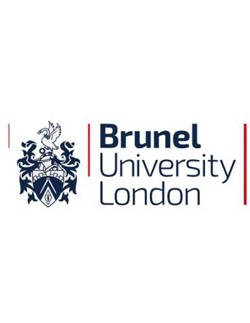Short Bio Organization
Brunel University London is a dynamic institution with over 13,000 students and over 1,000 academic staff operating in a vibrant culture of research excellence. With a turnover of more than £190 million, the University is a Higher Education and research establishment with considerable intellectual, financial and social resources and makes a major contribution to the economy and community of the West London region. It also plays a significant role in the higher education scene nationally and has numerous national and international links and partnerships with both academia and industry. The volume of ‘world-leading’ and ‘internationally excellent’ research carried out at Brunel University London has increased by more than half in the past six years, according to the Research Excellence Framework 2014.
The implementation activities will be performed in the Institute for the Environment (IfE) of BRUNEL. IfE is recognised internationally for its research in environmental science, and benefits from strong international links with industries, water companies, and government authorities such as the European Environment Agency. IfE has a wide range of testing and analysis equipment, and state-of-the-art equipment for the chemical analysis of samples. BRUNEL has significant experience in conducting environmental and economic assessment as part of a sustainability agenda of many projects in different sectors.
Relation with HYDROUSA
Brunel University will help in formulating HYDROUSA water-energy-food nexus
integrating the performance factors of each water loop. The data obtained from all the water loops and the individual key performance indicators (KPIs) will be interlinked, correlations between them identified and an overall assessment of Water Management-Sustainability (Energy-GHG Emissions)-Food Production will emerge. Material Flow Analysis (MFA) will be deployed, where the material and substances flowing throughout the HYDROUSA nexus will be traced and the evolution and transformation as they go through different processes and boundaries will be monitored, measured and reported to stakeholders. This measurement is based on yield analysis (i.e. the flow of finished product mass leaving the plant (actual output) to the flow of raw material mass into the plant with respect to nominal capacity (expected output). Through this, overall equipment effectiveness and guides for best practices and new developments can emerge (innovation and adaptation). Brunel will propose the methodologies and models for measuring Water Management-Sustainability (Energy-GHG Emissions)-Food Production processes.






